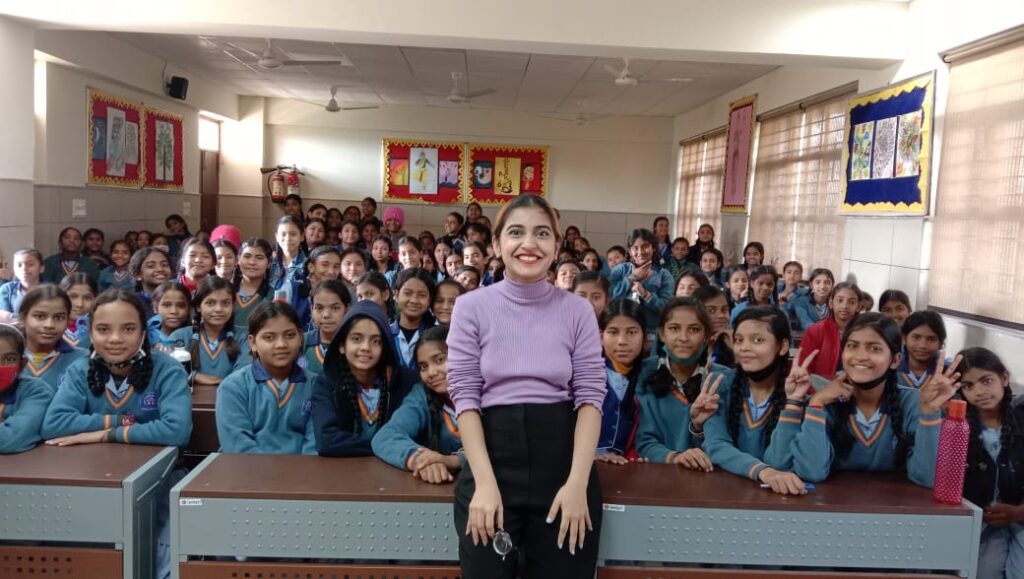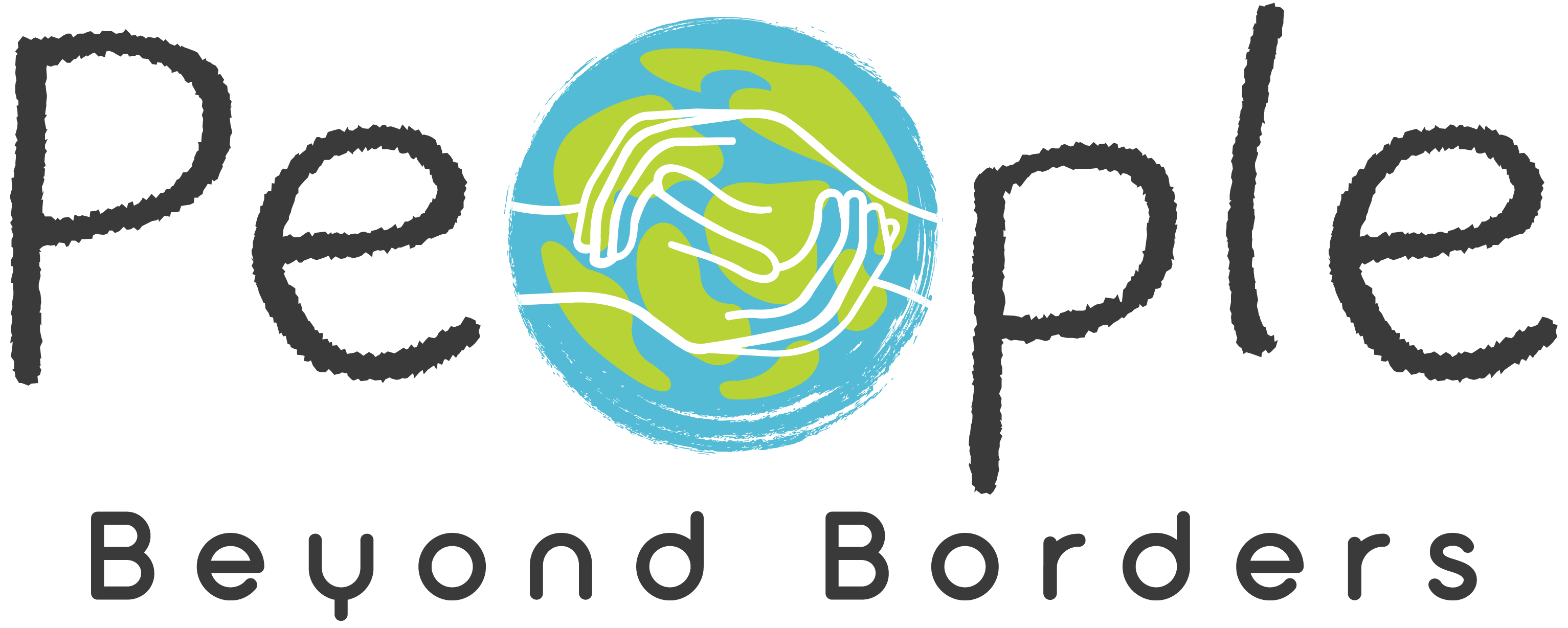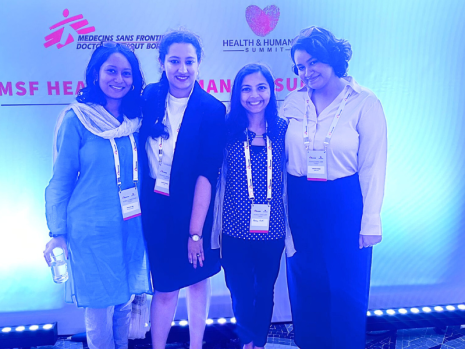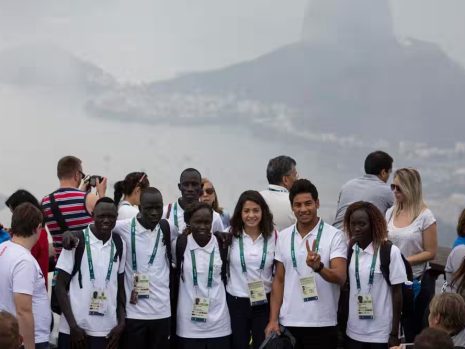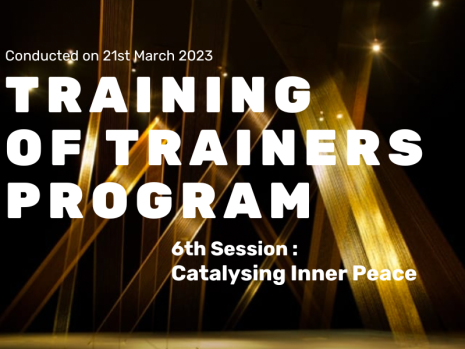This is the fifth blog in PBB’s human library series. People Beyond Borders’ work is rooted in cultural and ethnographic approaches to migration, displacement and the humanitarian sector. Instead of interpreting stories, we seek to really listen to it from the person living it with a hope to un-judge a book by its cover through our human library-styled series.
Gender equality in today’s age is the talk of the town, why? Because it is a fundamental human right above all. It promotes fairness, justice, and equal opportunities for all individuals regardless of their gender. Gender equality ensures that people from all genders have the same rights, responsibilities, and opportunities in all aspects of life, including education, employment, health care, politics, and decision-making. Gender equality is crucial for promoting social justice and reducing poverty. When women and girls in particular are empowered, they are less likely to be discriminated against, exploited, or subjected to violence. This, in turn, leads to increased social mobility and better living standards for everyone.
Gender equality and women’s health are closely linked. Access to safe and affordable menstrual products, as well as education and awareness about menstrual health, are important steps towards achieving gender equality. Additionally, addressing menstrual stigma and promoting open conversations about menstruation can help break down gender barriers and promote inclusivity.
But how do we have these conversations? It is important to include these conversations in the larger development and policy discourse to ensure equitable living standards. Tanya from team PBB had the opportunity to speak to Prakshi Saha (22), Co-Founder & Director of Her Adhikaar Foundation and a fourth year law student. A passionate and motivated non-profit leader, Prakshi has been advocating for gender equality from the age of 16!
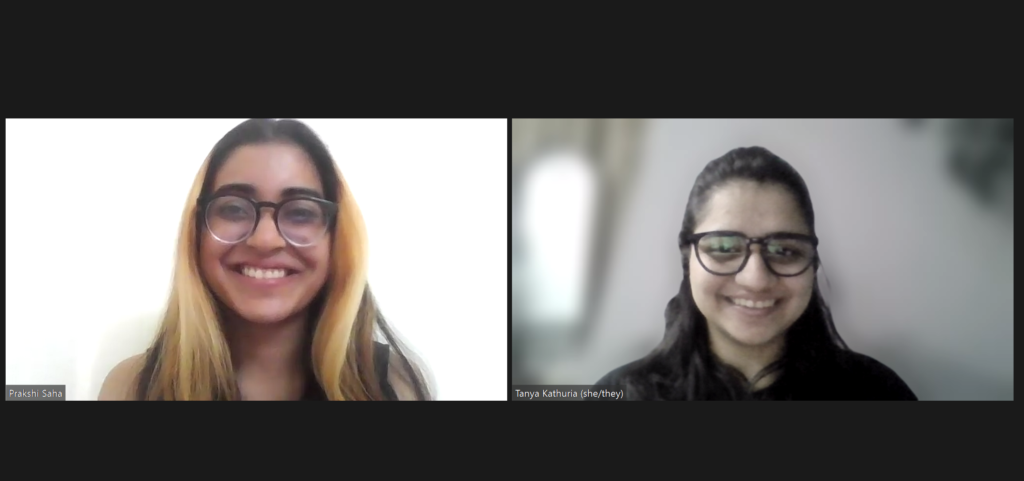
“I’ve been a gender activist since I was sixteen. Initially, I began by writing about gender on various digital platforms. Since all I had was the internet at home, it was my small way of creating change. During the lockdown in 2020, I got more actively involved in the field, running campaigns and advocating for policy-level changes. In 2021, I founded my own non-profit organization called the “Her Adhikaar Foundation”. It’s a feminist non-profit that works at the intersection of health, education, safety, and gender, broadly in areas of menstrual health and comprehensive digital education.” – Prakshi Saha, Co-founder Her Adhikaar Foundation
As a nonprofit founder or someone with an academic background in law, Prakshi’s end goal is to create sustainable change. She believes that this can only be achieved through public-private partnerships that leverage the resources and infrastructure that governments have already established to create a better world.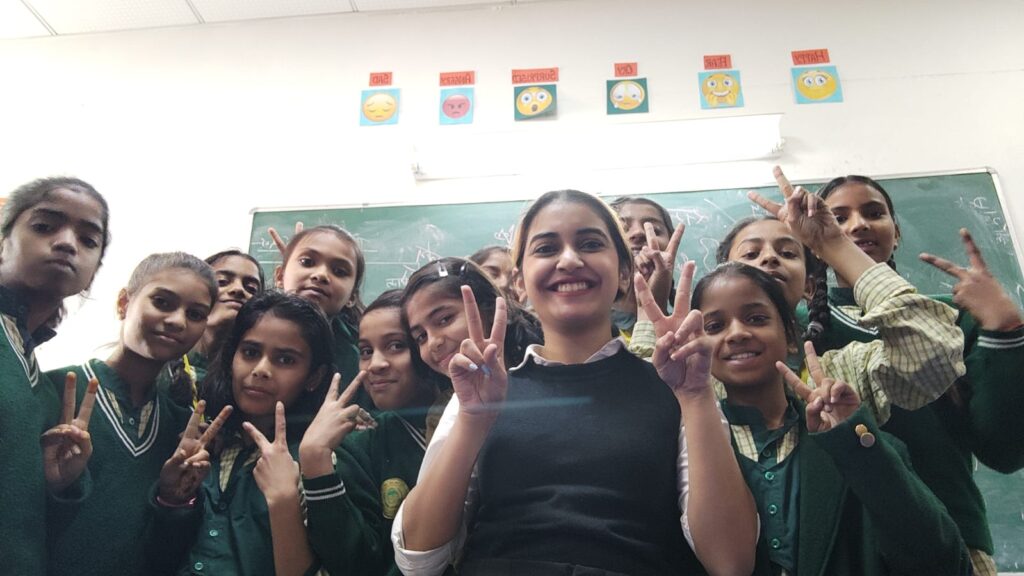
Being completely in awe of Prakshi’s passion, we asked her how she became a gender activist at the age of 16. She explains, “I don’t think there was one particular incident, but rather a couple of small incidents coupled together that had a huge impact on me. I was pretty aware of things happening around me, but I didn’t properly understand what ‘rape’ meant until the news was covered on the Nirbhaya incident with graphic details. I don’t remember the first time I cried, but thirteen days later, when she passed away, I was just weeping and couldn’t stop. I think it was also a lot of built-up anger that made me cry so much. Even normal things at home, like seeing my mom or just having casual experiences, made me more aware. So, all of that – these everyday instances – just piled up. I called myself a feminist first when I was twelve. At home, on the streets, in school, things happenings around me often made really angry and helpless, and I had so much to say. But when I talked to my friends in school, they weren’t interested. It was such a boring thing to them, like, ‘Why are you talking about politics? Hence, writing became my only form of authentic self expression. It helped me find my voice.”
Prakshi mentions having Indian parents who are very protective, so she wasn’t allowed to go out to protest etc. As a result, she turned to the internet as her main source of connection and self-expression. She created an anonymous social media page as her safe space, where she could freely express herself without worrying about who was reading or listening. Social media became the primary platform that gave Prakshi a voice and reach, and it all started when she was in school.
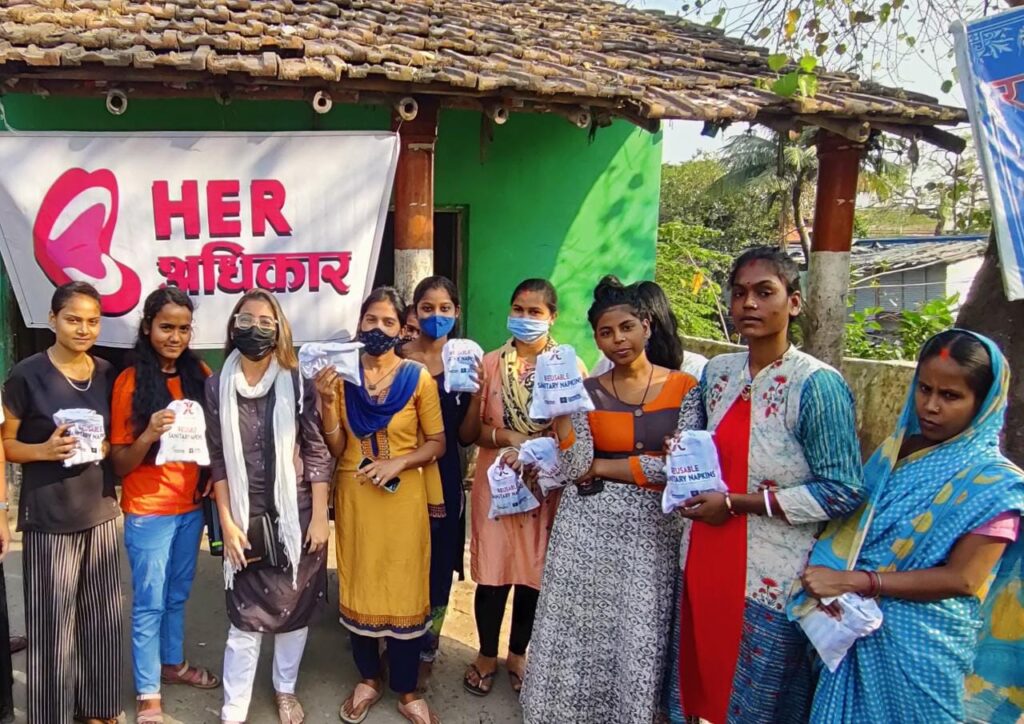
On being asked how she copes with being in a protective environment which a lot of Asian families have, Prakshi graciously mentions, “I am very close to my parents, especially my mom. I consider myself stubborn in many ways, as I hold strong beliefs. But I like to share things about my work with my mother. The shift in perspective didn’t happen overnight. I have been doing this for six years now, and we have had multiple conversations. She is in a better place now, probably more woke than many young people!”
Prakshi, an empath works with many people and organizations on the grass root level especially with understanding the different needs of women and young girls in need of accessible and affordable menstrual products. On being asked how she copes with being an empath, Prakshi mentioned that she believes it’s important to stay informed about what’s happening in the world and cannot simply ignore information. She explained that this drive to make a positive social impact is what motivates her to wake up and work every day. Prakshi acknowledged that the negative news can be overwhelming, and that she has not completely figured out how to deal with it. She shared that therapy and self-care practices have helped her regulate her emotions and practice self-preservation. She now avoids things that trigger her and takes breaks when needed. Overall, Prakshi sees her journey as a process of learning more about herself and her emotions.
“I feel like I’m just starting to take small steps towards making an impact from within the system. My experience is limited, but I have had the privilege of working with some truly wonderful people who are currently working with the Delhi Government. They really care about important issues like education and healthcare. However, when you look at the majority of people in power, it’s still mostly older individuals who don’t necessarily prioritize women’s health. It’s a tricky and difficult policy area to address because policymakers don’t always consider it a priority.”
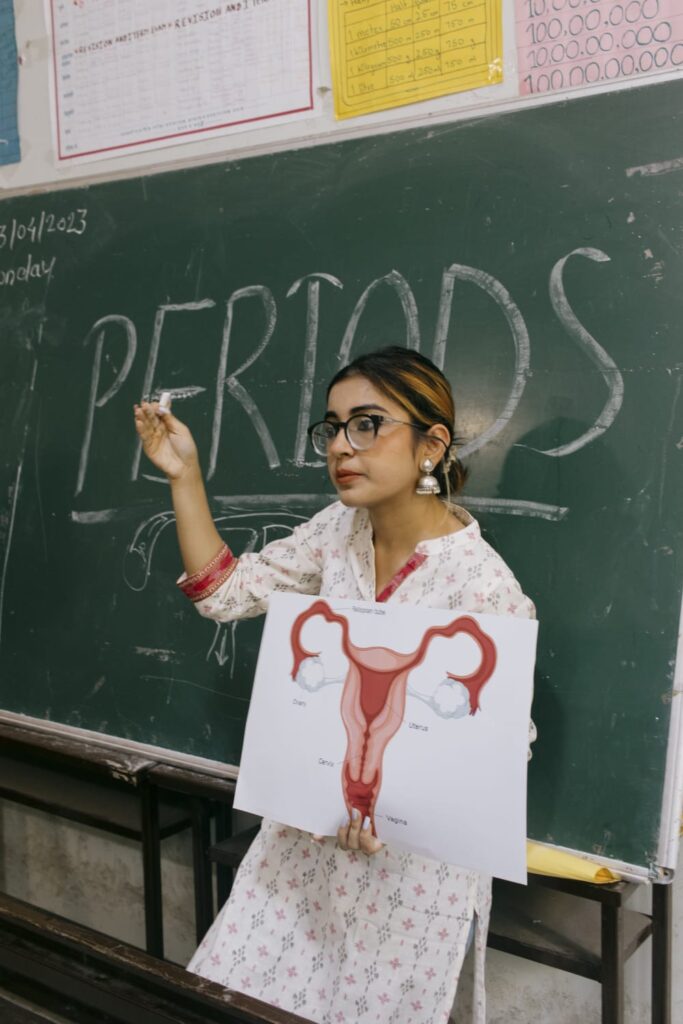 Prakshi mentions that there exist individuals in positions of power that can be reached out to and influenced to bring about change. The slow process of affecting change is familiar to activists and nonprofit founders, and they understand that it doesn’t always happen quickly. Through being part of the system, leaders like her have learned that these processes take time, and sometimes the key is to simply advocate and wait. The partnership between nonprofits and governments is gradually unfolding, with governments collaborating with research and implementing partners, nonprofits, and consulting firms to hire experts in various fields to develop policies on issues such as education and health.
Prakshi mentions that there exist individuals in positions of power that can be reached out to and influenced to bring about change. The slow process of affecting change is familiar to activists and nonprofit founders, and they understand that it doesn’t always happen quickly. Through being part of the system, leaders like her have learned that these processes take time, and sometimes the key is to simply advocate and wait. The partnership between nonprofits and governments is gradually unfolding, with governments collaborating with research and implementing partners, nonprofits, and consulting firms to hire experts in various fields to develop policies on issues such as education and health.
Currently Prakshi with Her Adhikaar Foundation and Dr. Tanya Narendra (popularly known as @dr_cuterus) on Instagram is working towards a petition to the Government of India to include the HPV vaccine in the Universal Immunization Program so that it is accessible and available to everyone.
Prakshi who is also a part of the official LinkedIn Creator Program believes in advocating through sharing knowledge online and helping create awareness with her audience in a more meaningful and constructive way.
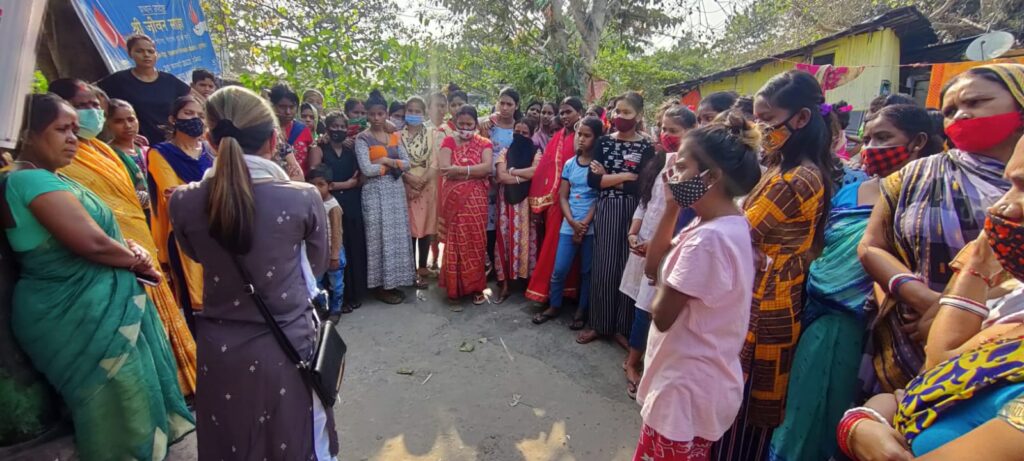
“Despite the challenges, working within the system holds immense potential to bring about change.”
“I think the first step towards getting involved in social impact work is to equip yourself with knowledge. Reading books, keeping up with current news events, improving your communication skills and writing are ways you can start, also in regional languages. If you’re interested in the nonprofit sector, volunteering can be a great way to learn and gain experience. When I started my own nonprofit, I did everything on my own with the help of a few volunteers because we didn’t have much funding. Through this process, I learned a lot of on-the-job skills, from taking workshops to fundraising.
Overall, I believe that everyone has a unique role to play in social impact work. It’s important to find a cause that you care deeply about and work towards it. In an ideal world, I hope that we can eliminate the shame and stigma surrounding conversations about the body, so that no girl has to drop out of school when menstruating. Many young people are already working towards this goal, and I hope that more will join the effort.” – Prakshi Saha, Co-founder Her Adhikaar Foundation
Join Prakshi in creating meaningful change and sign the petition to include the HPV vaccine in the Universal Immunization Program.
